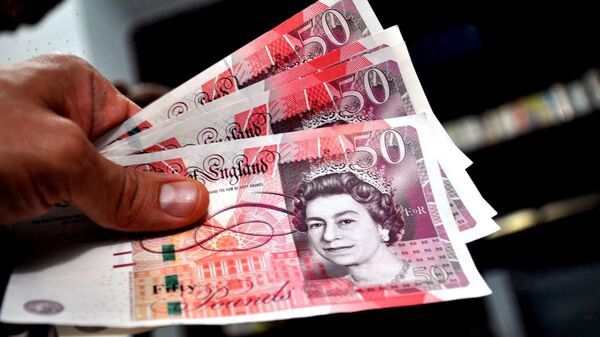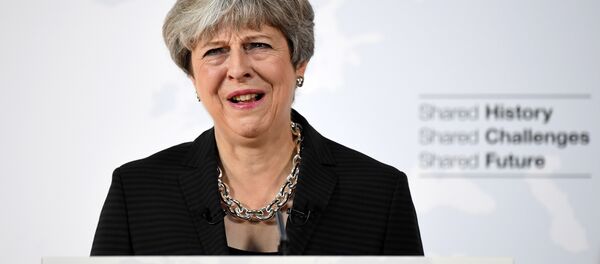Kristian Rouz — International credit rating agency Moody's downgrades the UK whilst confirming the current outlook after Prime Minister Theresa May unveiled her Brexit plan. These developments resulted in a minor sterling crash, most notably against the euro, reflecting the market's skepticism over the UK government's ability to increase its budget spending to support economic expansion in the coming years.
PM Theresa May said there would be a two-year "transition period" for the UK to leave the EU, and bilateral trade would continue on its current terms. The statement comes amidst a rising UK-EU exchange of goods, which supports Britain's economic expansion.
The prime minister also said there would be no tariffs between the EU and the UK, thus hindering expectations of a solid boost to Britain's manufacturing output. May didn't provide details on the UK's payments to the EU, estimated at18 billion pounds over the next two years.
The pound dropped against the dollar to $1.3495, and the euro rose to 0.8874 pounds, its two-day high, as market participants put into question the path of further UK economic expansion under May's proposals.
Rating agency Moody's lowered the UK one-step, to Aa2, its third-best investment grade, with a stable outlook, citing the persistent lack of clarity over the implementation of the Brexit proposal, slow economic growth and the prime minister's weakened political position amidst the ongoing standoff in Parliament.
"Moody's is no longer confident that the UK government will be able to secure a replacement free trade agreement with the EU, which substantially mitigates the negative economic impact of Brexit," the agency said.
The UK budget is facing lower revenues and higher expenditures, mainly due to the expected slow economic expansion, unless the cabinet can strike new trade deals with its partners in a swift manner.
The UK government responded to the rating downgrade, saying Moody's assessment of the state of the British economy is "outdated," because of May's "ambitious vision" for the national economy. The cabinet stressed they remain optimistic about the economic prospects, as Brexit is poised to spur structural reform and open new trade prospects for the UK.
Some say PM May will abandon the austerity policies of the past six years in order to support the economy and strengthen her position in Parliament. She decided not to cut state pensions, whilst aiming to increase the salaries of government employees. PM May is also increasing budget support for Ulster, within the framework of her political agreement with the DUP.
"Fiscal pressures will be exacerbated by the erosion of the UK's medium-term economic strength," Moody's said, emphasizing the "increasingly apparent challenges to policymaking given the complexity of Brexit negotiations and associated domestic political dynamics."
Moody expects UK government debt to exceed 90 percent of GDP this year, which is high even by advanced-nation standards. However, it is still far below the debt-to-GDP ratio of Japan, for example, where government debt is exceeding 400 percent of GDP.
After its flash crash, the pound recovered against the dollar, at $1.35 in New York, leaving no lasting impact on the UK market. This means the Brexit risks have already priced-in any further developments, and the overall pessimistic market perception of the future of the UK economy leaves Britain a chance to outperform market expectations in the coming months.




